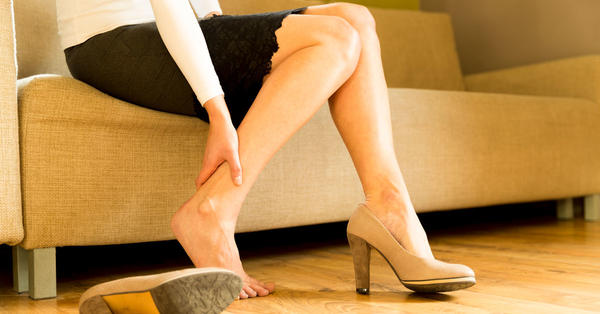More than one-third of adults in the United States are affected by varicose veins at some point in their lives,1 and in most cases, the cause is genetic. Varicose veins can be harmless, but swollen, twisted and bulging veins in the legs should not be discounted as a simple cosmetic concern or an inevitable sign of aging. Untreated varicose veins can lead to serious medical issues.
When to seek treatment for varicose veins
A vein’s purpose is to work against gravity and send blood from the legs back up to the heart. Venous reflux disease, also known as chronic venous insufficiency, occurs when blood flows in the wrong direction because the one-way valves in the veins fail. The ineffective valves cause blood to pool in the extremities and can cause symptoms such as pain, itching, swelling, cramping or skin discoloration.
Venous reflux can lead to a number of more serious issues beyond varicose veins, including chronic swelling and ulcers. In some cases, a person may show no outward signs of venous disease, but may still have symptoms.
Obtaining a diagnosis
When you seek treatment for varicose veins, choose a physician who is board-certified and specializes in treating the body’s vascular system, like a vascular and interventional radiologist or a vascular surgeon. A diagnosis begins with a focused medical history, then a physical exam and an ultrasound, which is used to evaluate the veins below the skin’s surface.
Minimally invasive treatment options
Treatment for varicose veins has significantly advanced in the last decade and no longer requires general anesthesia or large incisions to remove a problem vein, a procedure known as vein stripping2. Minimally invasive options exist, and most problem veins — from the tiniest spider veins to larger varicose veins — can be treated without surgery. Newer techniques include the use of heat, glue or a solution injected directly into the veins.
Treatment for varicose veins should be personalized to the individual. Depending on your particular vein problem, your treatment may involve one procedure or a combination. Often, when vein conditions are causing health problems, your treatment for varicose veins is covered by insurance; however, in some cases, treatments are considered cosmetic. Check your coverage with your insurance company.
Compression therapy is the most conservative treatment option. Compression stockings are designed to apply specific pressure to the legs to alleviate discomfort and swelling and do not require a prescription.
Endovenous ablation is a technique that uses heat in the form of either radiofrequency or laser energy to cauterize a faulty vein and divert blood to normal veins.
A type of medical adhesive, called VenaSeal™, does not require heat and is a good option for people whose problem veins may be near the skin’s surface.
Sclerotherapy involves using a tiny needle to inject a solution directly into the faulty veins and causes them to contract and collapse. All of these are outpatient treatments, and people can expect to resume normal activities within a day.
Microphlebectomy is another minimally invasive technique that involves tiny nicks in the skin through which a problem vein is removed. The incisions are so tiny, stitches are not required, and it is done with local anesthetic. This technique is most appropriate for large, bulging veins. Most people wear compression stockings for a week but can walk immediately afterwards and carry on with normal activities.
Removing varicose veins doesn’t affect blood flow because other veins take over.
To learn more about minimally invasive treatment options for varicose veins, visit: froedtert.com/varicose-spider-veins.
1 https://vascular.org/patient-resources/vascular-conditions/varicose-veins
2 https://www.medscape.com/viewarticle/778728

Good Morning,
Please how can I get this treatment in Nigeria. My Doctor has insisted that the only solution to treatment is surgery.
Hello Clifford -
Thank you for reaching out. For more information, please call our toll-free phone number 1-414-777-7700 or visit https://www.froedtert.com/international.
Thanks,
Taylor
I am having varicose veins and like your explanation about the new method of treating varicose veins without surgery. Please how can I contact you? I am from Nigeria and I want to know where I can get this treatment in Nigeria.
Hello Mike -
Thank you for reaching out. For more information, please call our toll-free phone number 1-414-777-7700 or visit https://www.froedtert.com/international.
Thanks,
Claire
How about varicocele?
Hello -
Thank you for your question. You can learn more about diagnosis and treating varicoceles at https://www.froedtert.com/fertility/male-infertility/varicocele.
Thank you,
Taylor
My mum is having an enlarged vein on the heart. How can i get this to help her get well without surgery?
Thank you for your inquiry. We would encourage your mother to connect with her primary care provider or a member of our cardiovascular team to discuss her concern further. If you’d like assistance finding a provider or scheduling an appointment, please call 414-777-7700.
Send email
Hi Curt, we have sent you a message to the email you provided. Thank you.
Varicose vains in legs